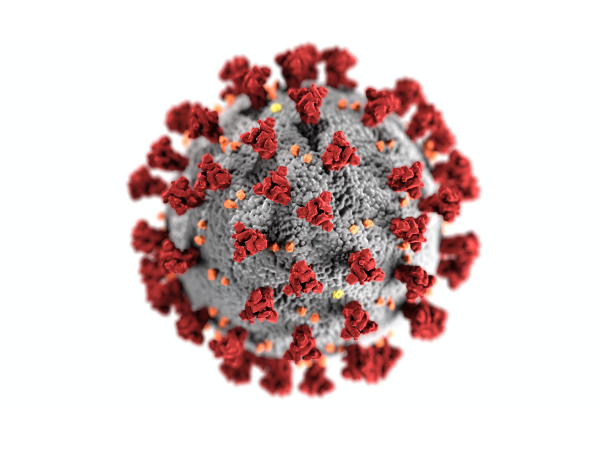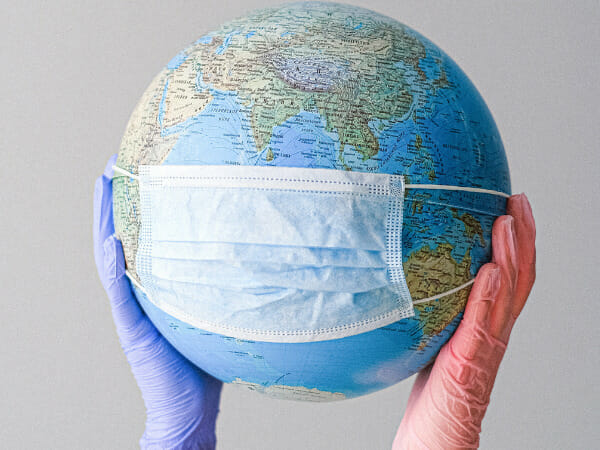Omicron – what to know about the new COVID variant
The world is keeping an eye out for the novel coronavirus’ new Omicron variant. If you’ve been following COVID news, you would have noticed that we’ve had many variants appear after Delta. Yet, countries are taking extra precautions because current vaccines may not work against it. This means it could potentially spread faster than previous variants.
This adds even more uncertainty to our lives. People are looking forward to the holidays, and many countries are already recovering from COVID’s effects. We must not give in to fear, stay calm, and track what we know about Omicron. This guide will help you do just that!
We’ll start by going through what experts have gathered about the Omicron variant. Then, we’ll explain what countries have done so far in response. We’ll discuss what you should do to prepare for its effects. We don’t know how bad this variant might be, but it’s better to be prepared.
What do we know about the Omicron variant?
The first specimen of the B.1.1.529 variant was found in a sample collected on November 9, 2021. Then, the World Health Organization (WHO) received reports about it on November 24.
Two days later, an independent group known as the TAG-VE held a meeting to analyze this new variant. It found out that it had a large number of mutations.
This means that it may slip past the protection provided by current vaccines. In other words, even those who had their COVID shots might still get infected.
Worse, initial evidence suggests that those who had COVID-19 before had a higher risk of becoming infected with this new variant. Still, information at the time of writing is limited.
We still do not know if it will spread faster than current variants such as Delta. Also, we are not clear on whether it will cause worse symptoms or not.
The omicron variant is a reminder of what scientists have warned for months: COVID-19 will thrive as long as vast parts of the world lack vaccines. The hoarding of jabs by rich countries gives the virus more chances to mutate in vaccine deserts. https://t.co/m0jgGtz640
— The Associated Press (@AP) November 29, 2021
We now know the B.1.1.529 variant as Omicron and the WHO classified it as a Variant Of Concern (VOC). More importantly, it warned the whole world to prepare for Omicron and recommended the following measures:
- Improve efforts to track and analyze the COVID variants.
- Submit their findings to a public database such as the GISAID.
- Report cases of VOC infection to the WHO.
- Study how the variants affect public health and the current COVID measures.
Read More: Booster Shots And Third Doses Of The COVID-19 Vaccine
How did countries respond?
The world reacted quickly to this new variant by returning their strict travel guidelines. For example, the Philippines changed its mind about allowing foreign tourists.
Sadly, the Omicron variant has still slipped into various countries. We’ve listed these places along with the number of Omicron cases they’ve found at the time of writing:
- Australia – 2
- Austria – 1
- Belgium – 1
- Botswana – 19
- Canada – 3
- Czech Republic – 1
- Denmark – 2
- Germany – 3
- Hong Kong – 3
- Israel – 1
- Italy – 1
- Portugal – 13
- South Africa – 77
- Spain – 1
- The Netherlands – 13
- United Kingdom – 9
In the United States, COVID cases are rising in Illinois, New Jersey, and Virginia, but there are no Omicron cases yet. President Biden also reminded people not to panic.
Instead, he advised that everyone should get their COVID shots and boosters and follow the other guidelines. He promised that he would not put another lockdown in place.
How should I respond?
You may find it odd that countries are reacting this much over the Omicron variant. After all, even the WHO admitted that we still do not know a lot about it.
On the other hand, you might be shuddering at the thought that you may go through another lockdown. You might be afraid that you’ll have to get new shots too.
The first thing you should do is calm down. We are still not sure of how bad it might be. The WHO said it’s working to provide more info about Omicron in the coming weeks.
We just announced our strategy to address the omicron (B.1.1.529) SARS-CoV-2 variant. Read more: https://t.co/dKzD3YFUV2 pic.twitter.com/j64Y0DuR7a
— Moderna (@moderna_tx) November 26, 2021
This means you should stay tuned to all the latest updates. Check news from the WHO and other outlets to learn more. Here’s what you should do while waiting:
- Get vaccinated – The other variants were still a threat even before Omicron came along. We may not know much about it, but we are certain that the vaccines help with the previous variants. If you get the recent shots, you will only have to avoid Omicron.
- Follow the COVID rules – You know the drill by now: maintain social distance and wear masks outdoors. The guidelines remained more or less the same even after Delta, Delta Plus, and the other variants appeared.
- Improve your health – You might want to start eating healthy and exercising plenty. While these may not protect against COVID, they will keep you from getting sick in other ways. If Omicron does become a major threat, then hospitals might struggle again. Being healthy means a lower chance of needing to go to a doctor.
- Talk to others – People lack social interaction due to the restrictions, causing a rise in mental health problems. That is why you should still try to talk to others, especially if you haven’t been feeling well lately. Everyone’s having trouble, so you may find it easier to get support.
How should I prepare my finances?
Everyone needs to manage their money a lot better during these times. People drive economies, but we haven’t been spending and making much money lately.
As a result, we should expect higher prices for everything we need and want. You will need to have enough funds to cover any expenses that may come.
Fortunately, the tried and tested methods still work even during the pandemic. Get your finances in order by following these steps:
- Track your needs and wants – List the regular expenses you need and the ones you don’t. Then, write down how much money is left of your salary minus taxes.
- Reduce the wants – Remove things you can live without, such as multiple online streaming subscriptions. Note that I said “reduce” your wants, not “get rid” of them. Spending on fun stuff once in a while helps you stick to your budget. Still, you must prioritize spending on your needs.
- Get rid of debt – It would be easier for you to have more money if you didn’t have monthly payments. That’s why you should pay all your debts as soon as possible. In case the Omicron causes stricter restrictions, you will likely have enough money to deal with it.
- Build an emergency fund – You must also set aside money at home or in a savings account. This will cover any emergency you may encounter, such as an injury. Even better, it keeps you from going into debt.
WHO update on Omicron, the new #COVID19 variant of concern: What we know & what we don't https://t.co/OVSKb74pHd
— World Health Organization (WHO) (@WHO) November 28, 2021
Related Articles
Final thoughts
We still do not know a lot about the Omicron variant. Until then, we mustn’t give in to fear, nor should we become reckless. Instead, we should stay vigilant by learning all we can talk about it.
What’s more, we should all follow the COVID guidelines in our countries. This means wearing masks outside, keeping a distance from others, and getting vaccinated.
You might want to read more Inquirer USA articles to learn more about the virus. They have more information about the booster shots and COVID’s other effects on our world.





